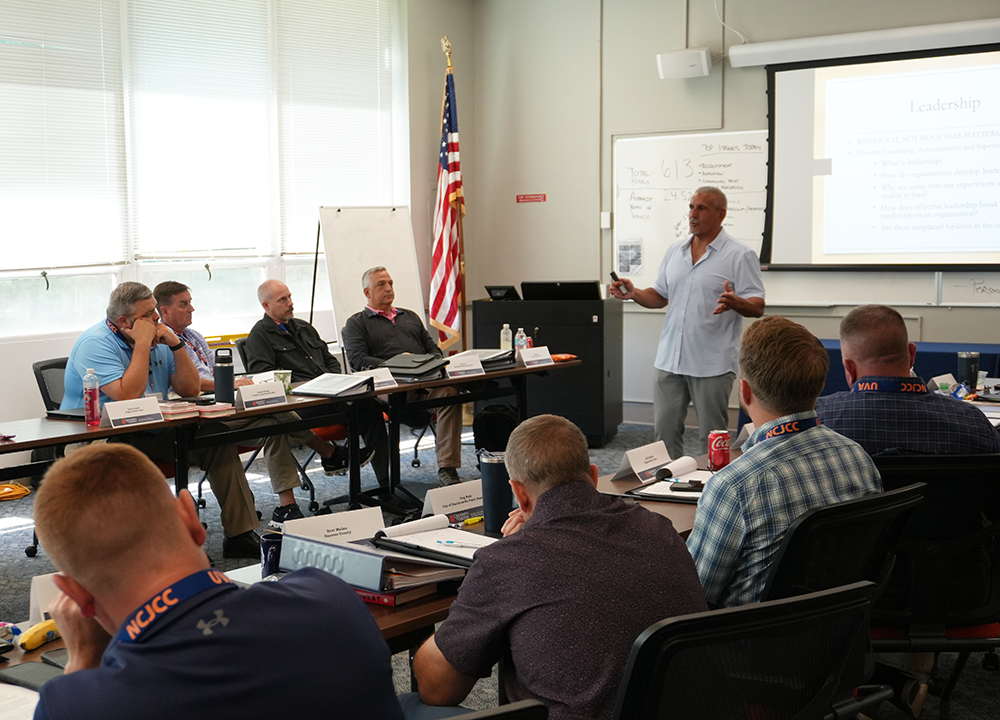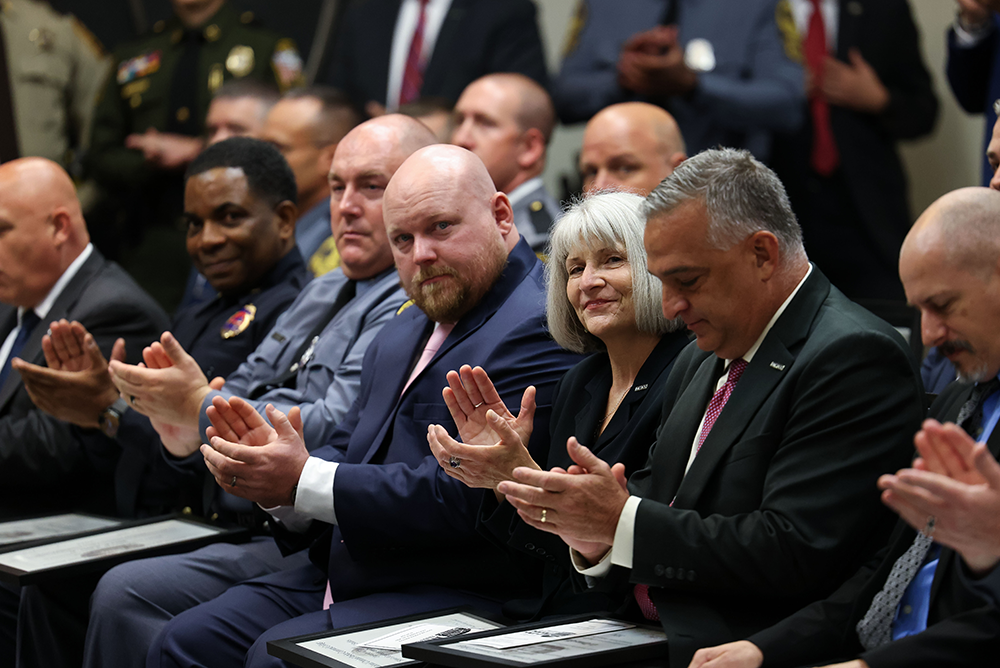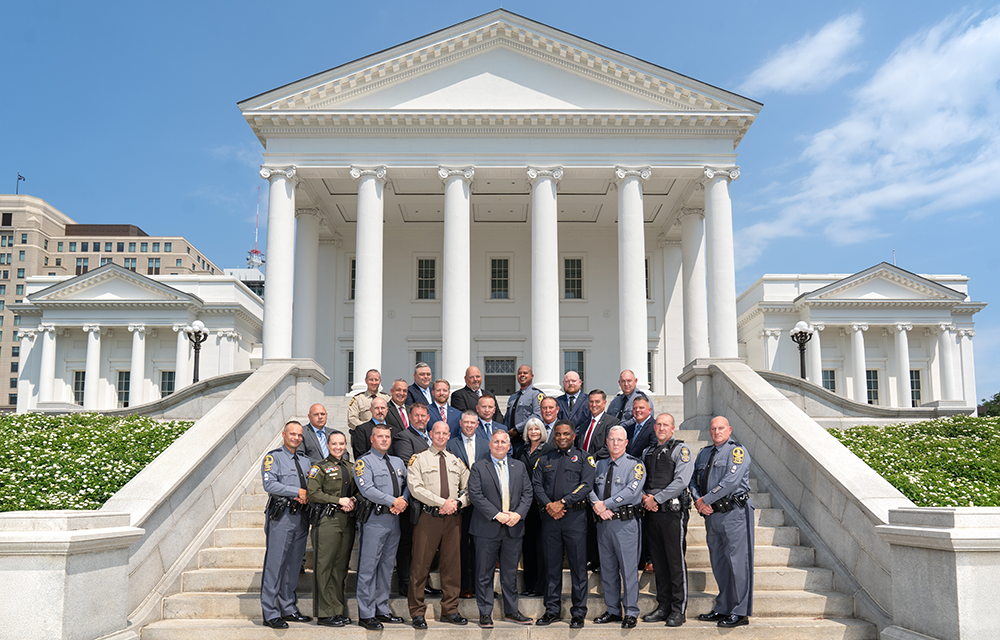The National Criminal Justice Command College (NCJCC) is excited to welcome its newest cohort of law enforcement leaders for the Spring 2025 session. Drawn from a wide range of agencies, these experienced law enforcement leaders will join a dynamic program that blends rigorous academics with hands-on learning, led by experts in law enforcement, public safety, and leadership.
Partnership with Virginia State Police
Presented by the University of Virginia’s School of Continuing and Professional Studies in partnership with the Virginia State Police, the NCJCC celebrates its 20th year of preparing law enforcement leaders to meet the evolving challenges of public safety. The NCJCC focuses on helping students develop the strategic, operational, and critical thinking skills that are essential for fostering safer communities.
Reflecting on the 20th anniversary of the NCJCC, Program Director Dr. Mark Hoover said,
“The 20th anniversary of the National Criminal Justice Command College is a true testament to our enduring partnership with the Virginia State Police and highlights the importance of leadership training that adapts to the changing needs of the law enforcement community. This program provides today’s law enforcement leaders with the tools they need to build more collaborative and responsive public safety organizations, and enhance community safety.”
The NCJCC attracts participants from a variety of law enforcement backgrounds, creating a rich environment for knowledge-sharing and collaboration across federal, state, county and municipal law enforcement agencies. This diversity not only strengthens dialogue within the classroom, but also helps students to build a professional network that extends far beyond the 10-week NCJCC session. Alumni often cite their new professional connections as being among the program’s many benefits.

Curriculum and Learning
The spring 2025 NCJCC cohort will be delivered through an intensive 10-week program at the University of Virginia in Charlottesville, the Virginia State Police training center near Richmond, and a field learning exercise in Washington, D.C. This format combines classroom-based instruction with real-world experiences, providing participants with practical tools they can immediately apply when they return to their law enforcement agencies.
Curriculum will cover essential topics such as strategic leadership, innovation and technology, ethics in policing, crisis management, media relations, as well as advanced problem-solving. Delivered by expert faculty from the University of Virginia, seasoned law enforcement practitioners, and leaders in the field of management and innovation, the program fosters a unique blend of academic and practical insights to help students expand the way they see the communities they serve.
One hallmark of the NCJCC is its emphasis on experiential learning. Participants engage in scenario-based exercises and case studies, refining their decision-making and leadership skills in realistic settings, and with real-world application. This hands-on approach helps them to turn theoretical knowledge into actionable strategies that can be put to use immediately upon return to their law enforcement agency.
Students in the NCJCC’s Spring 2025 cohort will not only gain critical skills and insights, they will also form lifelong professional and personal connections that are so critical during moments of crisis. NCJCC graduates leave the program equipped to drive meaningful change within their agencies, within themselves, and with the skills and practical knowledge necessary to improving the safety within the communities they serve.

A Long-Standing Mission
For two decades, the NCJCC has stood as a beacon of excellence in law enforcement leadership training, adapting to the demands of an ever-evolving landscape. As this next group of leaders steps forward, the University of Virginia and the National Criminal Justice Command College once again reaffirms their mission to nurture the next generation of law enforcement leaders, to prepare them to think strategically, creatively, and collaboratively, and to lead their communities with professionalism and integrity.
